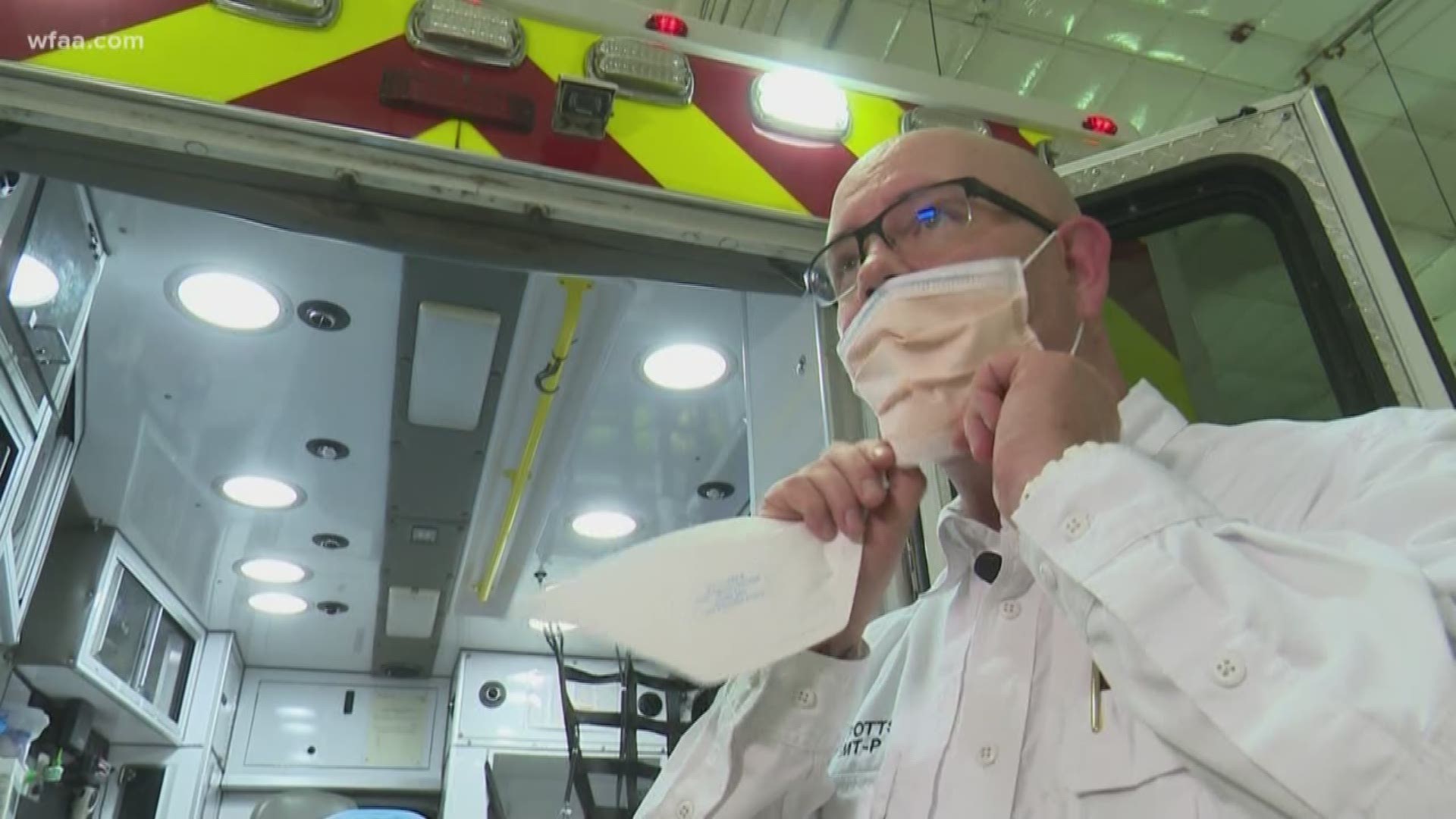FORT WORTH, Texas — Protective equipment for first responders is in short supply as COVID-19 exposure continues to grow, according to the National Association of EMTs.
President Matt Zavadsky is the chief strategic integration officer at MedStar, which is averaging 60 to 80 calls a day, where the caller is potentially positive for COVID-19.
“The lack of PPE for EMS providers has become critical,” Zavadsky said. “We really need help right now.”
The NAEMT sent letters to President Donald Trump and members of congress asking for direct financial aid, stressing EMTs and paramedics are on the front lines but lack the supplies and equipment they need.
The risk to first responders is so great, the Moncrief Cancer Institute partnered with the UNT Health Science Center to launch a drive-thru COVID-19 testing facility exclusively for first responders.
“Without that, many of them were being quarantined and taken off their jobs,” said Michael Williams, UNT Health Science Center president.
Testing began at the site on Monday.
Without the ability to rule out infection, first responders would be isolated for a minimum of two weeks, according to Keith Argenbright of the Moncrief Cancer Institute.
“We were able to get them back on the job in 48 hours, rather than the normal 14-day quarantine,” Argenbright said.
Priority testing for first responders is one of the items, the NAEMT is demanding for communities across the country.
Others call on neighbors to donate food and supplies, following stay-at-home guidelines and urging governments to fund the needs of agencies across the country.
“We have to do everything we can to be able to respond to calls, protect our team members so that they’re safe going into unknown environments so they don’t come down with an infectious disease," Zavadsky said.
Click here to read more from the NAEMT.

